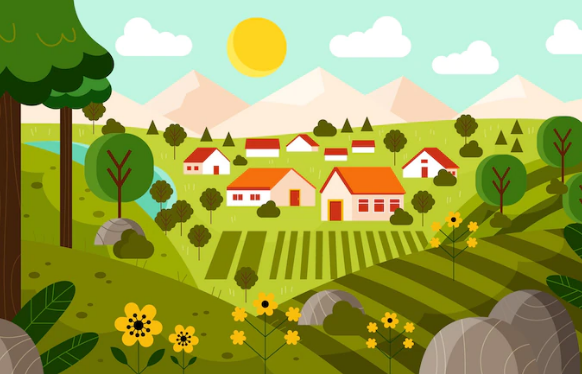THE RURAL WOMAN AND HER ROLE IN PEACE BUILDING
By Edidiong Idang
For Initiative for Peace and Women’s Right in Africa (IPWRA)
November, 2020
In October of every year, the United Nations celebrates International rural women’s day. This day is celebrated to recognize the effort of rural women in ensuring the sustainability of rural households and communities, improving rural livelihoods and the overall well-being of local societies. This day recognizes completely, the contribution of rural women in the agricultural sector and its ripple effect on rural development, improvement of food security and eradication of rural poverty. The rural women have continued to show huge successes in these regards amidst continuous setbacks stemming from lack of information, opportunities for training and education, limited access to property, land, and financial and non-financial services.
The place of the rural woman should not be limited to agricultural and rural sustainability. It is a known fact that women from indigenous and grass root communities are often custodians of traditional knowledge, which is a key to their communities’ livelihoods, resilience and culture. Such knowledge base and strength can be adapted towards the maintenance of peace within the communities and the society at large.
It should be noted also that some of the fundamental conditions that generate conflict in the rural or grass root communities are not limited to social and economic insecurity, political and cultural discrimination, exclusion to common resources and in other cases human rights discrimination (Lederach, 1999); and these are purely local. Women play unarticulated roles of peacebuilding in their families and social groups and as such have the capacity to contribute to curbing these local ills. Creating access for them in conflict and peace-building processes is essential for the delivery and sustainability of these peace processes.
How then do we define Peace, and how can rural women play a role in it? According to experts, peace is a state in which everyone is able to thrive without interferences of conflict, anger, prejudice and the like. Peacebuilding comes to bare as a result of varied opinion and needs- which usually leads to conflict. Peace and peacebuilding has therefore become necessary because conflict and conflicting situations are inevitable hence the need for effective management of situations.
As earlier stated, rural women have privileged information and substantial knowledge which can be tapped into ensuring conflict resolution and peacebuilding at all levels of conflict; be it intra-personal, inter-personal, intra-group, inter-group, intra-national or international conflicts.
Women are able to build trust, which is one of the reasons the Government and some local institutions have accorded them needed support to achieve success in the agriculture sector. Women are selfless, meaning that they are able to seek the common good above personal interest. They are good listeners. They are also able to manage conflicting opinions, a role they do so well in their homes.
Within the rural community, women are influencers. They are able to mobilize and influence their children, husbands and their immediate and extended families. Such skill is capable of ensuring that inter-personal or intra-group conflicts are handled before they escalate to a bad state. They share their goodwill with almost every stakeholder be it community leaders, religious leaders or members of their clan. Such goodwill allows them the opportunity of dousing tensions and also offer solutions. Women are caregivers and preservers. This quality can help in the sustainability of peace accords and maintaining a relatively peaceful community.
At every stage of conflict, rural women are relevant and have some role to play. From Pre-conflict where there is only incompatibility of goals amongst parties to crisis and then to post-conflict stages, women can use built-in and acquired skills in managing these processes. Experts reveal that Women are often the first to notice the rising tensions that can escalate to violence. They are also quick to respond to the aftermath of conflict, bearing the brunt of shattered economies and structures. With unhindered access to religious, cultural and relevant stakeholders, women have the capacity to broker lasting peace in conflict areas or even warn of situations that can lead to conflict.
As related by experts of an International Peace Institute, the study of 182 signed peace agreements between 1989 and 2011 revealed that when women were included in peace processes, there was a 35 per cent increase in the probability that the peace agreement would last 15 years or more. With this in mind, it is important that more women be given opportunity to participate in the process from the pre-stages to the point of resolution. Peace management and security issues should not be void of women to ensure the sustainability of the state of peace.
Being that conflict resolution and peacebuilding require some requisite skills, more women groups should be trained in order to achieve peace in rural communities. Informal and practical training should focus on negotiation and mediation skills, communication in conflict, conflict analysis and early warning skills. Confidence-building and continuous mentoring programs should not be left out. Encouraging strong support groups should also be encouraged.
In conclusion, rural women have soft skills that can be pruned towards conflict management and peacebuilding. The local community being the microcosm of the bigger picture (Lederach 1999) requires people with sufficient knowledge to handle these issues within the community; and people who can be trusted.
Rural women as many grass root leaders are able to identify the tiny lines of conflict because they witness firsthand the deep-rooted hatred and animosity within their local community on a daily basis. Government, Civil society organizations and International partners can look closely in developing the skills of these rural women in achieving sustainable peace in their societies.
In the recent past, through agitations from civil society and women groups, the Malian Government invited women to undertake formal mediation training ahead of the peace negotiations in Algiers in 2015. The women were trained and four were supported by the Malian Government to be part of the negotiations, more of such actions should be encouraged across the world.
Rather than wait till a minor conflict escalates to war, efforts should be targeted at building more sustainable peace in the local communities. Security agencies should give sufficient support to women in order to spur them to boldly take up these roles. Leaders and peace brokers should endeavour to build more inclusive processes where women can play more pivotal roles in building peace throughout the various stages of conflict management.
References:
Bore, Linda; Training Manual on Fundamentals of Democracy for Security Agencies; Konrad Adenauer
Lederach, J.P (1999) Building Peace: Sustainable Reconciliation in Divided Societies, United states Institute of Peace Press
https://www.un.org/womenwatch/feature/ruralwomen/overview-education-training-information.html
https://www.usip.org/publications/2017/11/essential-role-women-peacebuilding
https://peacekeeping.un.org/sites/default/files/19-00094_women_transforming_peace.pdf


Leave a Reply